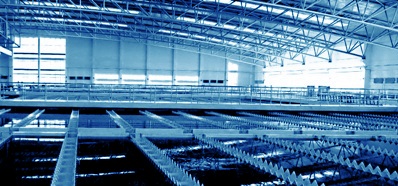Chemical Pumps
Operation Principles of Chemical Pumps
Chemical pumps are a crucial element in modern technologies, playing a key role in substance transfer across various industries.
The primary task of chemical pumps is the precise and efficient transfer of substances. These pumps operate based on various principles such as displacement, centrifugal force, and others. Their role in chemical processes cannot be overstated, as they ensure reliable transportation of chemical substances.
Application of Chemical Pumps
Chemical pumps find wide applications in industries. In the chemical sector, they facilitate the transfer of chemical reagents, in the oil and gas industry, they transport petroleum products, and in electronics manufacturing, they convey liquids for semiconductor production.
They are also utilized in the medical field, playing a crucial role in the operation of medical devices and ensuring the transportation of medical fluids.
Chemical pumps remain an essential component of modern technologies. Their role in industry and medicine, coupled with ongoing research and innovations, makes them a key element for future advancements in scientific and technical progress.
Types of Chemical Pumps
One type of chemical pump is the magnetic drive pump, utilizing magnetic field forces to transfer energy to the rotating pump rotor. This eliminates the need for pumping through the pump shaft seal, preventing fluid leakage. A notable advantage of this pump type is the absence of liquid leakage, particularly crucial when transferring aggressive and hazardous substances.
Another type is the air-operated diaphragm pump, driven by compressed air. Equipped with a flexible diaphragm, it compresses and expands under the pressure of compressed air, displacing the liquid through the pump. These pumps are also used for transferring aggressive and hazardous substances due to their complete seal.
There are also chemical pumps with electric motor drive, usually equipped with sealed seals to prevent leaks. These pumps can be designed to operate in aggressive environments.
Chemical pumps may vary in drive type, sealing, and the ability to work with aggressive substances. The choice of the right type depends on specific conditions.
UPCP – chemical pump
| Name | Indicator | Note |
| UPCP | 1200 m³/h, 100 m, -20°C to +110°C, 10 atm, DN 25 – DN 250, 200 kW |
|

PPCP – vertical chemical pump
| Name | Indicator | Note |
| PPCP | 11200 m³/h, 100 m, -20°C to +110°C, 10 atm, DN 25 – DN 250, 200 kW |
|


AcCP – self-priming chemical pump for acids
| Name | Indicator | Note |
| AcCP | 1200 m³/h, 100 m, -20°C to +110°C, 10 atm, DN 25 – DN 250, 200 kW |
|

AcAlCP – Chemical pump for acids and alkalis
| Name | Indicator | Note |
| AcAlCP | 1200 m³/h, 100 m, -20°C to +90°C, 10 atm, DN 25 – DN 250, 200 kW |
|

CMP – Chemical metering pump
| Name | Indicator | Note |
| CMP | Up to 500 l/h, 12 m, -20°C to +60°C, 10 atm, DN 5 – DN 25 |
|

SPMP – Self-priming chemical pump
| Name | Indicator | Note |
| SPMP | Up to 500 l/h, 12 m, -20°C to +60°C, 10 atm, DN 25 – DN 125 |
|

WCMP – Double metering chemical pump
| Name | Indicator | Note |
| WCMP | Up to 4 m³/h, 10 m, -20°C to +60°C |
|

WPCMP – Dual-plunger dosing chemical pump
| Name | Indicator | Note |
| WPCMP |
Up to 200 l/h, 300 bar, -20°C to +60°C |
|

BPCMP – Plunger dosing chemical pump
| Name | Indicator | Note |
| WPCMP | Up to 18,500 l/h, 100 bar, -20°C to +60°C |
|

Pumps for transferring chemical liquids at “LET” company
Dosing chemical pumps (WCMP, WPCMP, BPCMP), resistant to the effects of chemicals, are widely used in the chemical industry for pumping aggressive media, chemical liquids, concentrated acids and alkalis at elevated temperatures and similar conditions.
Acid-resistant pumps (ACCP, ACALCP) are ideal for moving weak acid and alkali solutions with a density of up to 1.75 kg/dm³. There are also barrel pumps made of polypropylene, adapted for use with these liquids and designed for filling chemical containers up to 3 meters high.
Explosion-proof pumps are offered in various designs for transferring flammable liquids of hazard classes A1, A2, A3, where the material in contact with the liquid can be adapted to specific requirements.
Thus, “LET” company is ready to provide acid-resistant pumps, optimally suitable for a wide range of liquids and operating conditions. To obtain additional information, it is necessary to fill out the online questionnaire or contact us by phone ☎ +7 (495) 232-00-66.



